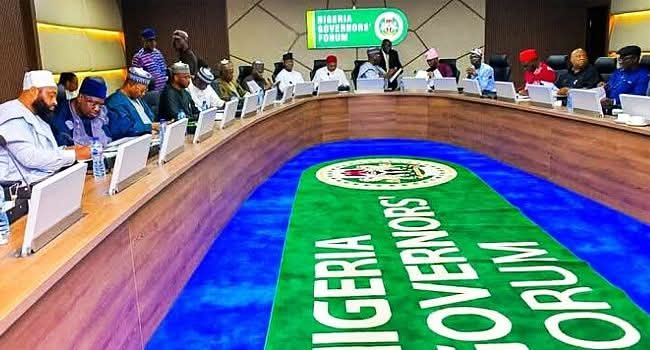Disappointing as state government still receives Local Government allocations despite Supreme Court verdict
Nearly six months after the Supreme Court ruled that local governments’ monthly allocations be paid into the individual accounts of the 774 local government councils; the Federation Accounts Allocation Committee (FAAC) is still paying the funds to joint states/LG accounts. BENJAMIN SAMSON in this report examines the implications.
Local government councils’ allocations for November 2024 were paid into the states/Local Governments Joint accounts by the Federation Accounts Allocation Committee (FAAC) contrary to what Nigerians were made to believe that the funds would go directly into the local governments’ individual accounts as ordered more than five months ago by the Supreme Court, reports Blueprint.
The sum of N1.727 trillion was shared by the federal, states and local government councils as revenue for the month of November 2024 by the Federation Accounts Allocation Committee (FAAC) – the highest in the history of the country.
An analysis of communiqués released after the monthly meeting of Federation Accounts Allocation Committee by Blueprint Weekend showed that from July to December 2024, the total distributable revenue amounted to N8.351 trillion, which was shared among the federal government, states, and local government councils.
Further analysis showed that the total amount allocated to the local government councils was N2.075tn
Governors’ role
In a chat with this reporter, a political economist, Dr. Robert Adah, blamed governors for doing everything within their powers to delay implementation of the judgement.
He said, “To a large extent, the state governors have failed to prove wrong the pundits who claimed that state chief executives would do everything within their powers to thwart the good intentions of the Supreme Court, which gave judgment in favour of direct remittance of statutory allocations to the third tier of government. They are frustrating implementation of the Judgement.
“Not long after the people jubilated over the apex court judgment in the suit instituted against the state governments by the federal government for a judicial interpretation of the constitutional provision on the funding of the third tier of government, some of the governors are looking for ways to subvert the judgement.
“The Supreme Court in July ordered the federal government to immediately start direct payment of local governments’ monthly allocations into the individual accounts of the 774 local government councils.
“However, shortly after the judgement was delivered, the federal government said it had identified operational issues that needed to be sorted out before the direct payment could be done.
“It thus created a three-month window for all the issues to be resolved. The three-month moratorium lapsed since October and local governments are yet to begin receiving their allocations directly.”
ALGON kicks
The Secretary-General of the Association of Local Governments of Nigeria (ALGON), Mohammed Abubakar, while speaking on the delay in the direct payment of federal allocation to local governments, lamented the non-implementation of the Supreme Court ruling.
He said, “Sincerely, we are all in the dark as we stand now. People who don’t want this local government autonomy to work are having a field day.
“Ordinarily, the Supreme Court judgment should not be left unattended. We are in the dark, to the extent that we cannot pinpoint what the government is trying to achieve by not enforcing the Supreme Court judgment allowing allocation to be paid directly to local government accounts.
“We had made our submissions that the local government accounts should be opened across board and submitted to the Office of The Accountant-General for the allocation to be disbursed directly, but the governors are claiming that they already utilised funds for the interest of the local governments. They also argued that the local governments’ money is not enough to take care of all the health and the primary school teachers. But we are saying they should allow the implementation first, and then we can make a case for whatever deficiencies we have.”
He said further that, “But in a situation where you don’t act but worry about some issues raised by the governors which include that they have incurred a lot of loans on behalf of the local government, then we may not have a way forward.
“So, these are the bottlenecks that we understand are causing these delays, but again, there can be a way out of these issues and we have proffered some solutions to the committee. It is best known to the committee why it has not carried out the advice we gave to them.”
Similarly, a former local government chairman of Igbo-Eze North in Enugu state, Tony Ugwu, said “if Nigeria is talking about local government autonomy without the councils getting allocations directly from the federal government,” the essence of the much-talked about autonomy would have been defeated.
He said, “Many local government chairmen in Nigeria are new in the seat, and have not received any allocation from the federal government. Until that is done, one will be able to know if they are going to match their words with action.
“As far as I am concerned, talking about LG autonomy without the councils receiving allocations directly from the federal government will negate that good intention.
“If the new found autonomy for local governments is religiously implemented, the positive multiplier effect will be much. The important impact it will have is to ensure development of the rural communities which hitherto had suffered serious neglect.”
Confusion
Also, some top officials in some local government councils in Nasarawa state, who asked not to be named in print, confided in this reporter that while they were looking forward to the new dispensation, there were still no sufficient and clear indications that their financial autonomy would be without encumbrances from the governors.
One of them said, “It remains to be seen if the newly found financial autonomy by local governments in the country would be allowed by the state governments to thrive.
“The body language of the governors in response to the new arrangement is eloquent and audible enough. It is not only in Nasarawa state, but all over the country. But as things stand now, no one can categorically state how the whole arrangement will pan out. We are only waiting to see how things will unfold.”
Another top council official also said, “Elected Council chairmen are under severe pressure to perform. They are yet to begin work because no kobo has been released directly to the council’s treasury.
“They were hoping that the November allocations from the federation account would be given directly to the local governments, but their hope was dashed.”
He also disclosed that all eyes were “now on the elected chairmen and members of the legislative councils to deliver,” adding that if they got the money he was certain that they would do well.
“Honestly, we are under enormous pressure from the people to deliver and the people also know how much that comes to the councils from the federation account every month because it is usually published on the national dailies. Now, the people from my local government already know that the council receives approximately N300 million every month and sometimes slightly higher.
“From September to this November the council would have received close to a billion naira and the people know that. But as it is now we have not resumed work because there is no fund yet. Initially, we had hoped that the governor would have given us the November allocations, but it was not so. As I speak nothing is happening right now because the funds are not available. Hopefully, if we get this December allocations directly then work will start, “he said further.
In the same vein, the legislative leader of Olamaboro local council in Kogi state, Enejo Philips, said as soon as they received allocations the real action would commence.
He said, “As soon as we receive allocations, action will commence, but for now we are just trying to marshal out plans. We are ready to do our duties as legislators at the Council to ensure that our people enjoy the dividends of democracy. And our people expect the narratives to change this time around and we are going to change it for the better.”
Further reactions
A cross-section of citizens, who spoke with this reporter, said it would be nice for local government chairmen to receive their allocations directly.
A teacher who identified himself as Ikechukwu said “this is the time” for the newly elected Council chairmen to account for why they were elected.
“Let them prove to us why they were elected; they have a lot on their shoulders, let them provide good governance in the rural areas. They should strictly detach themselves from the state government and usher in true local autonomy,” he said.
Mrs. Stella Afolabi, an Ibadan-based fashion designer, urged governors to allow local government chairmen to be truly independent. She wants the Council chairmen to look at the rural roads in her community and address the menace of herdsmen infiltrating into their farms.
“It’s a welcome development, but we don’t want a situation where the chairmen are controlled by the governor, they should truly be independent and provide good roads in the rural areas, our farmers need protection too, they should address the problem of herdsmen destroying our crops in our villages,” she said.
A civil servant, Nanjul Marcus, from Edo state, said, “It is sad that the federal government itself has not started implementation of the direct remittance of allocations to local government councils.
“I heard local council chairmen in other states complaining of financial strangulation by their governors. The story is not different in Edo state.
It would be a welcome development for local councils to receive FAAC allocations directly.”
LG elections
A political analyst, Prince Benjamin Apugo, said any action taken without removing local government elections from states’ Independent electoral bodies, would not guarantee full autonomy for the Councils.
“I believe that LG autonomy in Nigeria is not yet complete. When you give them autonomy and leave state governments to conduct their elections, it means they have no autonomy yet.
“INEC should have conducted the elections where every party will contest. The way things are presently, the governor’s party will always score 100 over 100. If that is the case, where then lies the autonomy of the Councils?”
He added that since the landmark Supreme Court ruling on local government administration, many states have conducted elections for their local councils. However, the recent elections have left advocates of local government autonomy scratching their heads. Most commentaries on the elections have been negative.
“The headlines after each exercise often read, ‘Ruling party in X state sweeps council polls, wins election in all local governments.’
“All the elections conducted by the various State Independent Electoral Commissions (SIECs) were rejected as fraudulent by opposition parties and major civil society organisations.”
Likewise, the convener of Citizens Right Action, a civil society organisation, Mukhtar Shehu, describes LG polls conducted by states following the Supreme Court ruling on LG autonomy as mockery of democracy.
He said, “Visible lopsidedness and the arrhythmic local council polls instigated by the July 11 Supreme Court ruling negate all known democratic norms. They fuel the fear that the country’s democracy is tenuous at all levels.
“The Supreme Court ruling gives financial autonomy to local governments, terminates the toxic era of illegal caretaker committees illegally constituted by governors, and mandates the choice of LG officials through elections. It ends governors’ arbitrary sacking of democratically elected LG chairmen and councilors.
“The Centre has announced that only LGs with duly elected officials will be granted allocations in compliance with the ruling. This necessitated a rush by states to conduct LG elections.”
He added, “Unfortunately, the 15 council elections conducted so far reek of electoral heist. This has undermined the essence of LG autonomy ordered by the Supreme Court.
“The LG elections conducted since October were riddled with credibility and transparency issues. In some states, the opposition boycotted the exercise. The votes were swept by the ruling parties or parties that the ruling parties preferred.
“The elections were characterised by the incumbency factor, absence or late arrival of election materials, non-voting, vote-buying, opposition repression, rejection of results, explosions, and gunshot violence.
“The solution to the country’s LG debacle is true fiscal federalism. In a polity where LGs rely mainly on allocations that can barely pay workers’ salaries, the variant of federalism that puts LGs under states for effective administration and management should be preferred as LG responsibilities go beyond salary payment to include providing services in the critical sectors such as education, health care, roads, and water.”




